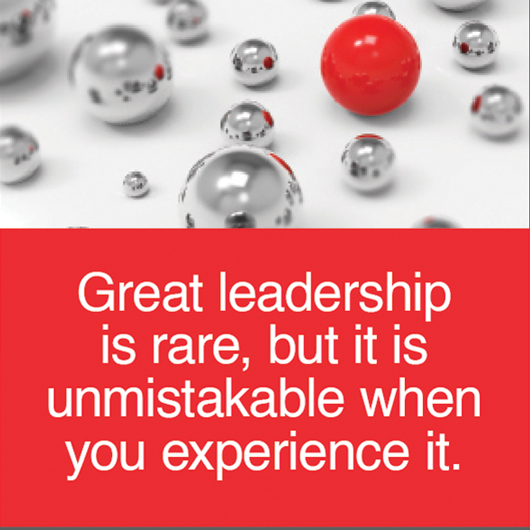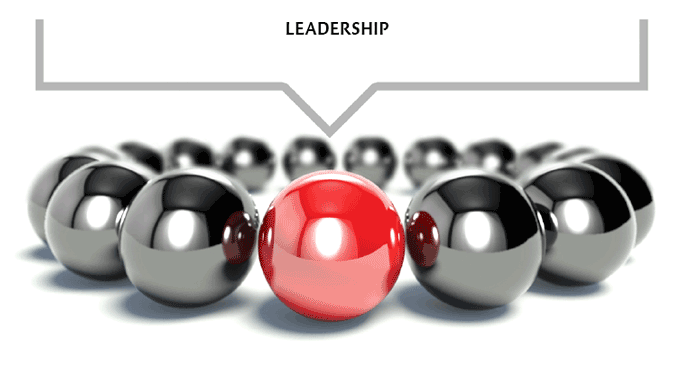It doesn’t matter our job title; we all can be leaders
By Carey Wallace
Leadership in its simplest form is the ability of an individual to influence and guide others. That sounds pretty straightforward, but in actuality it is not. There is a reason why more than 50,000 book titles on Amazon contain the word leadership. While the core definition of leadership is a fairly simple concept, the reality is that there are many styles and approaches to leadership making it one of the most written about topics.
To complicate matters, we all seem to have perceptions of what a good leader is and who can even be a leader.
We can all most definitively spot a bad leader, but we may struggle to know what leadership looks like in every role and stage of our journey. The most exciting part about leadership is that we all have the same opportunity to lead from any position.
More than a title
One of the most fascinating things about true leadership is that it has little to do with titles or commanding authority, and everything to do with common core qualities. People do not follow titles, they follow leaders, and the best leaders lead through influence, not authority.
The reality is that the world is filled with many great leaders who have absolutely no title; they have core qualities that are far more powerful than any title. This means that whether you are a producer, agency owner, account manager, client service representative, bookkeeper, or receptionist it does not matter; we all can lead.
“Leader” is many times an unspoken title that is subconsciously given to those who possess the ability to connect, empathize, and build trust, with integrity, confidence, and humility.
Connectors. One of the best ways to connect with the people around you is to listen.

The best leaders have a genuine way of making other people feel like there is nothing more important than the conversation that they are having at that moment. They are active listeners who make the people around them feel both heard and understood.
Feeling a connection to others is a core component to any effective team, and those who can build and reinforce connections naturally emerge as leaders and people others want to follow. Some of the best connectors in an agency are the account managers and CSRs who connect and listen to clients every single day.
While it may seem simple, listening can be one of the toughest skills to master in our world today, but it is one of the best ways to connect.
Empathy. Nobody likes the feeling of being alone and nobody likes to feel like nobody else understands their point of view.
An empathetic leader has the ability to think like they were in someone else’s shoes. One of the best ways to demonstrate that you care about another person is the ability to empathize with them and their situation.
We are in the people and relationship business, so empathy is a quality that is necessary to be successful and lead within every role inside an agency. It is an innate trait that is particularly important to connect and foster a deep level of respect for others; sadly, it is not a quality that can be easily taught.
Empathetic leaders are some of the most influential leaders because of their natural ability to form deep connections.
Trust. To influence others, you must first build trust. Trust is a foundation that is developed over time and through consistency in our actions. It requires integrity, accountability, and vulnerability.
For a co-worker, client, partner, or manager to be open to your ideas, place their confidence in you, and see you as someone who understands them enough to follow your lead, they have to trust you first.
Many times, we are building trust with others when we least expect to. When I first started my career, I thought that others always had it all figured out and that I was the only one who had doubts and felt uncertain. When someone I looked up to on my team confided in me that they made a mistake and asked my opinion, it was a relief; I realized I was not the only one. Their vulnerability created a bridge that did not exist before and allowed me to feel safe enough to open up more to them.
The best leaders are brave enough to be vulnerable.
Integrity. We all know the saying that actions speak louder than words. I once heard the late North Carolina insurance legend Bobby Salmon say: “What you do is so loud I can’t hear what you said.”
The best leaders are the ones who demonstrate their values through their actions, especially in the toughest times. They are consistent and reinforce repeatedly that you can count on them to do the right thing.
One of the best ways to lose credibility is to contradict yourself. With strong leaders, there is never a time when what they say and what they do are inconsistent. The best leaders operate in a way that they hold themselves accountable.
Whether you are responsible for customer service, sales, accounting, or the entire agency, integrity is a non-negotiable quality. Great leaders set their standards for personal integrity extremely high. They take responsibility for issues, offer help to others, and expect nothing in return.
Those people who “walk their talk” and stay true to their core beliefs make it extremely easy for others to follow.
Decisive. A strong leader can make sound decisions that others can support. They will welcome ideas, encourage debate, and possess the ability to see and weigh multiple viewpoints, and then be fair and swift in their decisions.
It is critical to set a direction for others; part of doing that is removing the uncertainty in a situation and having the confidence to be decisive. The best leaders will model this skill set and empower others to build strong decision-making skills and create an environment where the people around them feel empowered to make decisions.
The biggest reason decisions are not made is the fear of being wrong. Any person in any role within an agency can create that safe space, as we all play a role in shaping the culture of our organizations.
Great leaders remove that fear by the way they react and by creating an environment that celebrates failures as much as wins.
Beyond the checklist
There are lists upon lists of qualities and traits that make a great leader, but when you get down to it, it is all about how you care for and treat others.
We are in the people and relationship business, so empathy
is a quality that is necessary to be successful
and lead within every role inside an agency.
While leadership seems incredibly simple, achieving it is not something that comes easily to everyone. So many of us mistakenly assume that leaders are only those who have titles, authority, or a particular position. We believe that without those things we can’t lead.
The reality is that leadership has very little to do with titles and everything to do with a person’s core values, beliefs, and the way they interact with others. We all have the opportunity to lead from any position.
You can read as many books as you want on leadership, but the best way to learn about leadership is to experience a great leader. Their example is more powerful than any theory or idea contained on the pages of a book.
Great leadership is rare, but it is unmistakable when you experience it.
The author
Over the past 16 years, Carey Wallace has worked with hundreds of independent insurance agencies helping them understand their agency’s value and turn that knowledge into an actionable plan for their future. She prides herself on taking the time to understand the agency’s unique situation and helping them build the future they envision for themselves. She is a Certified Exit Planning Advisor (CEPA) and provides a variety of business consulting services including valuation, perpetuation planning services, acquisition support, financial and compensation analysis, and fractional CFO services through the company she founded, Agency Focus, LLC. To learn more, please visit www.agency-focus.com or contact Carey at Carey@agency-focus.com.






